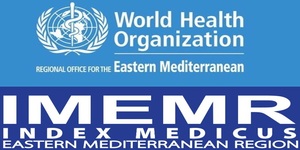Assessment of Breast Cancer Early Detection Program's Activities in Primary Health Care Centers in Baghdad City
DOI:
https://doi.org/10.36321/kjns.vi20132.2475Keywords:
Breast Cancer, Early Detection Program's ActivitiesAbstract
Objective: To assess early detection program for breast cancer by evaluating the structure of the regulatory process (any activities performed by health personnel) and the outcome.
Methodology: descriptive study was conducted for the period of April 15 - May 31/2012. And such a study has selected a random sample (simple) which its frame was (220) and as a result of the different demographics of the sample studied, and their diversity which has the need for the work of three questionnaires distributed as follows: first questionnaire is to study the structure of management and the building that provide the service for tests of early breast cancer to the beneficiaries; and which may include two health central sector of all primary health care in the city of Baghdad and the total count for this sample is (20) centers for primary health care. The second questionnaire is to examine the services; activities performed by health personnel in the field of this program by their units and were answered by officials of this program in primary health care centers. The third questionnaire is to study the segment benefited of the services of the program of early detection of breast cancer which has included the study of the qualities of demographic and social services for them; their review to primary health care center, their satisfaction, their acceptance and their participation in the activities of the health center, beside that attending the awareness seminars and health education so the total of such sample, reaches (200) of the beneficiaries of care. The data analyzed by using of SPSS, and performed the data analysis process through the use of statistical methods of descriptive analysis method (Recurring, and percentages) and the arithmetic mean and standard deviation and deductive analysis (Chi square, sufficiency ratio percentage.
Result: The early detection program for breast cancer has experienced some limitations in its implementation that include the process which is concerned with registration by health personnel and the documentation, The program's outcome indicates that beneficiaries are satisfied with health services; the program is high effective; and most of the beneficiaries is ranging between non-morbid and those who have completed the treatment and moving toward recovery,
Conclusion: The program overall assessment shows that the program has a capacity to achieve less than two third of its anticipated performance.
Recommendations: The follow up for the implementation of the vocabulary of the program by the Ministry of Health officials about the program at the health centers to address the imbalance in this implementation.
Downloads
Downloads
Published
How to Cite
Issue
Section
License
Copyright (c) 2014 Sajida Khamis Abdullah

This work is licensed under a Creative Commons Attribution 4.0 International License.













